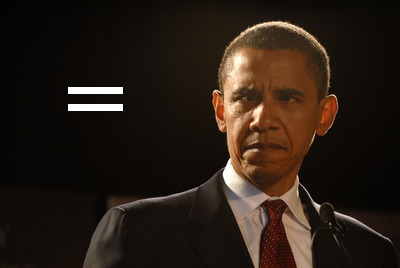
Barak Hussein Obama, as I write this, enjoys untold legions of fans. Some of them identify him with Jesus, or with Abe Lincoln, or Franklin Delano Roosevelt, or Moses.
What I just said is true. But what it mean? It sure does not mean that a lot of people think B.H.O. is one and the same being as (i.e. is numerically identical to) Abe (etc.). All it means is that they associate B.H.O. with one or more of those famous people. Barak reminds them of the prior saviour; the see him as playing a similar role.
(Yes, if you beat the bushes you could probably find a few who think Barak is the reincarnation of Abe or someone. They would be thinking that Barak and Abe are numerically one being.)
In their identity-talk, many contemporary theologians wreak untold havoc.
Exhibit A: One prominent scholar – one whom I greatly respect – argues that the author of Matthew “identifies” Jesus “as” Wisdom – with the female character of Proverbs 8, and (the apocryphal) Sirach (aka Ecclesiasticus) 24. His point is that, whereas Luke and Mark don’t teach the pre-existence of Christ (i.e. prior to his conception in Mary), and Paul does, with Matthew being sort of an unclear middle step between them. He holds that by the way the author of Matthew modifies the material of Q (the postulated source used by Mt, Mk, and Lk), he makes Jesus says things Wisdom says, and so “identifies” Christ “as” Wisdom.
I set aside the merits of his case, to ask: what is the conclusion he’s driving towards? If it is that the author literally identifies Christ with Wisdom (holds them to be one and the same individual entity), so that the author thinks that Wisdom, like Christ, is a person, and moreover the same person? If that’s his point, he’s hardly established it. Yet he seems confident in his arguments. It seems his point is rather that the author (and/or Jesus himself) associates Jesus with Wisdom (whether this is a fictional character, an attribute of God, or a person who predates the creation of the cosmos). This is plausible, in light of passages he cites like Mt. 11:28-30, where Jesus’ words seem to echo those of the lady Wisdom in Sirach 24. But then, no great christological conclusions follow from this, and the “identity” talk only introduced confusion into the whole discussion.
Exhibit B: One well-known theologian is in the process of making a career out of the claim that according to the Bible, Jesus is “included within the identity of” God. I’ve see other writers echo this claim. What does he mean by this? I have no idea – other than, whatever this claim is, it is supposed to be consistent with and perhaps support “the” doctrine of the Trinity. Identity is a relation everything bears to itself, and not to anything is.What could it mean for a certain being to be “in” this relation?
If X is “included in the identity” of Y, I suppose that could be a round about way of saying that X=Y, that X and Y are one and the same entity, named twice. But if someone makes this claim, and then thinks some things are true of X which are not true of Y (or vice-versa), then either this person is inconsistent with herself, or I have no idea what she’s saying. Agnosticism is the more charitable route, it seems.
I could multiply examples of this, but it would make my head hurt. My theologian friends: please don’t say that some author “identifies” what look like two characters (e.g. Jesus and God, Jesus and the Word, God and the Father of Jesus, the Holy Spirit and God), unless you go on to say what you mean by this. Either that author assumes or asserts the “two” to in fact be one and the same entity, or he’s saying they’re related otherwise. If the latter, please say precisely how the author thinks X and Y are related. Are they just similar? Does X come from Y? Is one a part of the other? Is one a mode or aspect of the other? Does one explain the other? Are X and Y made of the same stuff?
If the reader can’t discern precisely what relation you have in mind, it may be that you don’t have any precise relation in mind. If that’s the case, go back to the study and think some more before you write another word. Seriously. The world is already too full of unclear and unhelpful books on theology – I have a shelf in my office to prove it. You may publish less, but you’ll eventually gain a reputation as a non-time-waster – someone with something to say.
The same goes for “equates”, e.g. “John equates Jesus and God.” Equates? Says they are equal? Equal in what way, exactly? Please, do tell… As long as you leave it at “equates”, we have no real idea what you’re saying about John.
The post Don’t think/write like a contemporary theologian – Part 5 – identity blabber appeared first on Trinities.